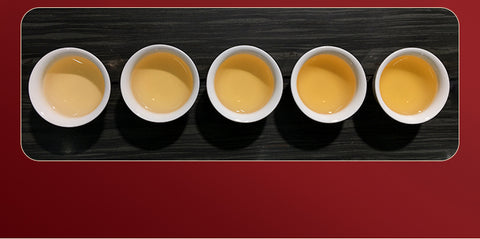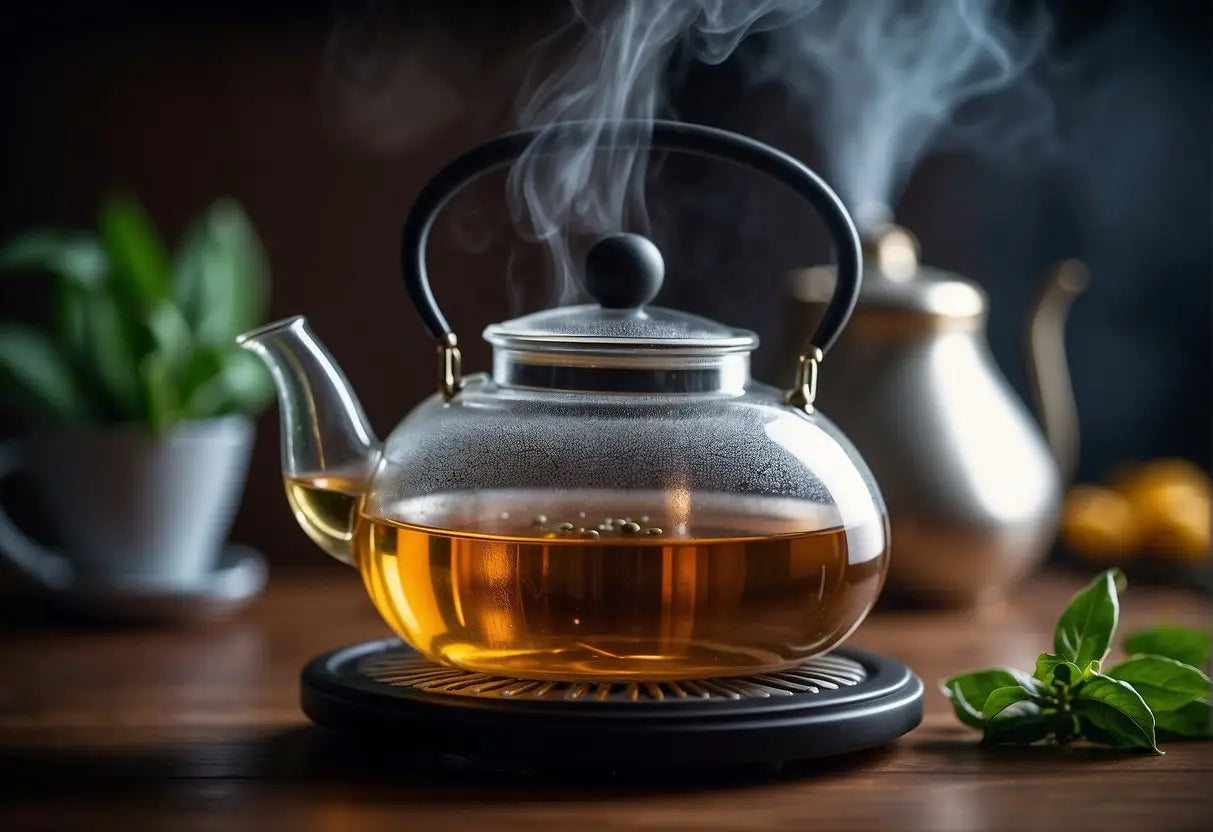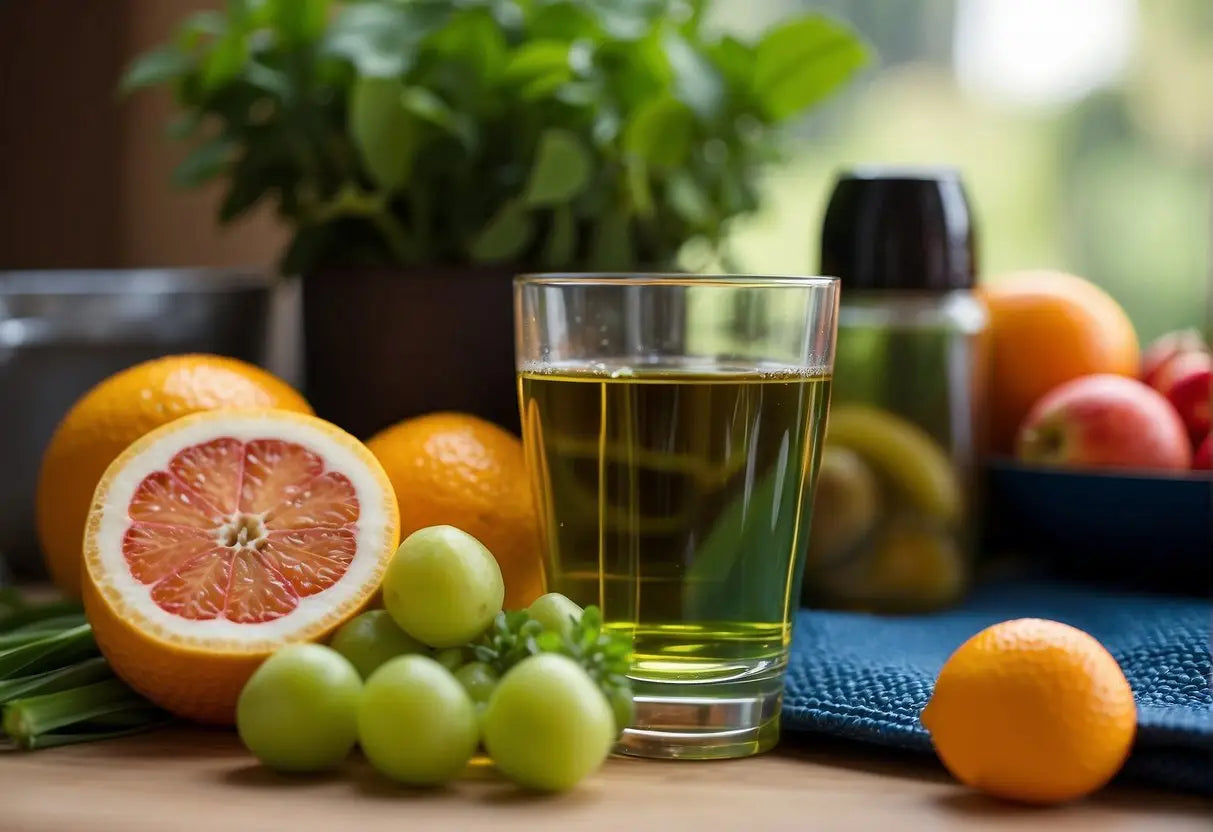What Tea is Good for Bladder Infection
Shop our Pu Erh Tea collections!
When you're dealing with a bladder infection, certain types of tea can be beneficial to your recovery process. Herbal teas, in particular, are known for their soothing properties and potential to help alleviate uncomfortable symptoms.
Chamomile Tea: This tea is admired for its anti-inflammatory qualities that can help reduce bladder irritation and inflammation. It's also considered a mild diuretic, which can promote increased urination, aiding in the elimination of bacteria from your urinary system.
Bestsellers
- Soothing effect: Reduces discomfort and urgency.
- Diuretic properties: Encourages flushing out of bacteria.
Dandelion Tea: Often used for its diuretic effect, dandelion tea may assist in the cleansing of the urinary tract, making it harder for bacteria to multiply.
- Cleansing effect: Helps clear urinary pathways.
- Natural diuretic: Aids in flushing out harmful organisms.
Bearberry Tea: Also known as uva-ursi, it contains compounds such as arbutin that can have an antimicrobial effect. It's important to note that bearberry should only be used for short periods and is not suitable for everyone.
- Antimicrobial action: Targets bacteria causing infection.
- Short-term use: Recommended for acute infection phases.
Remember to drink plenty of fluids alongside your tea consumption to help flush out your urinary system. Additionally, always consult with your healthcare provider before trying new herbal remedies, especially if you are pregnant, breastfeeding, or have existing health concerns. Proper hydration and the potential soothing effects of certain herbal teas may support the conventional treatment prescribed by your healthcare provider.
Types of Tea for Bladder Health

Check out our Sheng pu erh tea collection and Ripe pu erh tea collection.
In managing bladder health, certain teas have been identified to potentially aid in reducing inflammation and fighting infection. Here, you'll discover specific teas that could be beneficial for bladder infections.
Herbal Teas
Herbal teas, such as chamomile and marshmallow root, can be soothing for your bladder. Chamomile tea is known for its anti-inflammatory properties which may help reduce bladder irritation. Marshmallow root tea forms a protective layer on the bladder lining, potentially easing discomfort.
Green Tea
Packed with antioxidants, green tea contains catechins that have antimicrobial properties. Regular consumption of green tea may help prevent the growth of bacteria that lead to bladder infections. It’s recommended to choose decaffeinated versions to avoid any potential irritation from caffeine.
Cranberry Tea
Cranberry tea is often recommended for its potential role in maintaining urinary tract health. Cranberries contain A-type proanthocyanidins which can prevent bacteria from adhering to the bladder wall, reducing the risk of infection. Drinking cranberry tea may support your overall bladder health.
Why Some Teas Help With Bladder Infections

Certain teas contain compounds that may assist in alleviating the symptoms of bladder infections, also known as urinary tract infections (UTIs). Your body can benefit in specific ways from these compounds:
-
Antimicrobial Properties: Some herbal teas have natural antimicrobials which can help reduce the growth of bacteria that cause UTIs. For example:
Lao Ban Zhang
- Horsetail tea
- Dandelion tea
-
Anti-inflammatory Effects: Inflammation is a typical response to infection. Teas like chamomile contain anti-inflammatory substances that may soothe your bladder's lining, potentially easing discomfort.
-
Increasing Urination: Increased fluid intake encourages urination, which helps flush bacteria from your urinary system. Herbal teas are particularly helpful in this regard:
- Nettle leaf tea
- Parsley tea
-
Antioxidants: Teas have antioxidants, which aid in strengthening your immune system. This boost can be beneficial in fighting off infections.
For your safety, it is essential to know which teas are most effective. Always choose caffeine-free options because caffeine can irritate your bladder. Bear in mind that while teas can provide relief, they should not replace medical treatments prescribed by your healthcare provider. Here is a helpful list of teas with potential benefits for bladder infections:
| Tea Type | Benefit |
|---|---|
| Chamomile Tea | Reduces inflammation |
| Parsley Tea | Increases urination |
| Bearberry Tea | Antimicrobial effects |
Remember to consult with your healthcare provider before attempting to treat a bladder infection with tea, as you may require antibiotics or other medications.
How to Properly Brew Tea for Medicinal Use

When brewing tea for medicinal purposes, precision is key. By following these steps, you ensure maximum efficacy from the therapeutic compounds in the tea.
Step 1: Choose Quality Tea
- Opt for organic or wild-crafted herbs, as they are less likely to contain pesticides that can irritate the bladder.
- Source loose-leaf teas or whole herbs when possible; they retain their natural oils and active ingredients better than their powdered counterparts.
Step 2: Use the Right Water
- Start with cold, purified water to avoid contaminants.
- Bring water to a rolling boil for black tea, or just short of boiling for herbal teas to prevent burning the leaves.
Step 3: Measure Your Tea
- Use 1 to 2 teaspoons of loose-leaf tea or herbs per 8 ounces of water.
- For stronger medicinal properties, you may increase the amount slightly.
Step 4: Steep Time
- Black tea: steep for 3-5 minutes.
- Herbal teas (such as chamomile or marshmallow root, which may soothe the bladder): steep for 5-10 minutes.
- Covering the cup while steeping allows the essential oils and active compounds to infuse into the water without evaporating.
Step 5: Strain and Serve
- Strain loose leaves or remove the tea bag.
- Sip the tea while it's warm, but not too hot to drink comfortably.
Remember, consistency is important; drink the recommended amount of tea on a daily basis to support bladder health. Consult with a healthcare provider for advice tailored to your condition.
Precautions and Potential Interactions
When considering teas for bladder infections, it's important to be aware of potential side effects and interactions with other medications you may be taking. Herbal teas can affect individuals differently, and some can interact with prescription medications.
Possible Side Effects:
- Certain teas may aggravate symptoms in some individuals. If you experience increased discomfort or other adverse effects, discontinue use immediately.
- Overconsumption of diuretic teas might lead to dehydration.
Interactions with Medications:
| Herbal Tea | Potential Interaction |
|---|---|
| Cranberry | May interact with warfarin, increasing bleeding risk. |
| Dandelion | Could reduce the effectiveness of antibiotics like Cipro. |
| Bearberry (Uva Ursi) | High doses may interact with diuretics or lithium. |
Allergies and Conditions:
- If you have a history of kidney stones, certain teas, like those with high oxalate content, may not be suitable for you.
- Always check for potential allergies to specific herbs before consumption.
Be sure to consult with your healthcare professional before using herbal teas, especially if you have preexisting conditions or are pregnant. Inform them of all medications and supplements you are currently taking to avoid any adverse effects or interactions.
It is crucial to approach the use of herbal teas as a supplementary measure, not a primary treatment for bladder infections. Seek professional medical advice for a proper diagnosis and treatment plan.
Diet and Lifestyle Tips for a Healthy Bladder

Maintaining a healthy bladder involves adopting certain diet and lifestyle habits. Keeping hydrated, choosing the right foods, and staying active are crucial steps.
Hydration
- Drink water: Aim for 6-8 cups daily to flush out bacteria.
- Limit irritants: Reduce caffeine and alcohol, which can irritate the bladder lining.
Nutrition
- Focus on fiber: Include fruits, vegetables, and whole grains to prevent constipation, which can put pressure on your bladder.
- Avoid spicy foods: Spicy dishes may aggravate symptoms of a bladder infection.
Activity Level
- Stay active: Regular, gentle exercise can strengthen pelvic floor muscles.
- Take frequent bathroom breaks: Don’t hold in urine to avoid potential infection.
When to See a Doctor
If you suspect a bladder infection, it is important to monitor your symptoms closely. Seek medical attention if you experience:
- Persistent discomfort: If your symptoms do not improve after a few days of home treatment, such as drinking fluids and trying suitable teas.
- Severe pain: Intense pain in the lower abdomen or back could indicate a more serious infection.
- Fever: A temperature above 100.4°F (38°C) can signify the infection might be spreading.
- Blood in urine: This symptom always warrants a checkup to rule out other serious conditions.
| Symptom | Action Required |
|---|---|
| Persistent Pain | Consult a doctor immediately |
| Blood in Urine | Seek immediate medical attention |
| Fever | Consult a doctor if persistent or high |
| Nausea or Vomiting | See a doctor, especially if severe |
You should also see a doctor if:
- You have frequent recurrences of bladder infections.
- You are pregnant and suspect a bladder infection.
- You have underlying health conditions that can make you more susceptible to complications, such as diabetes.
Remember, bladder infections can lead to more serious kidney infections if not promptly and properly treated. If you are experiencing any confusing or concerning symptoms, it's always safer to consult a healthcare professional. They can provide a proper diagnosis and treatment plan tailored to your needs.
Frequently Asked Questions
In this section, you will find detailed answers to common inquiries regarding teas and natural remedies beneficial for bladder health, as well as dietary tips for urinary tract wellness.
Which teas are beneficial for maintaining bladder health?
Certain teas can be helpful in maintaining bladder health. Drinking herbal teas like chamomile, dandelion, and nettle may assist in flushing out bacteria and reducing inflammation.
What natural remedies can alleviate urinary tract infections?
Natural remedies like hydration, consuming cranberry juice, and taking vitamin C can help alleviate urinary tract infections. Furthermore, probiotics may also promote a healthy urinary tract.
Can certain teas exacerbate urinary tract infections?
Yes, certain caffeinated teas could potentially irritate the bladder and might exacerbate symptoms of a urinary tract infection. It's best to avoid caffeine if you are prone to UTIs.
Which herbs are known to soothe bladder irritation?
Herbs such as marshmallow root, uva-ursi, and horsetail have properties that can soothe bladder irritation and reduce discomfort associated with urinary tract issues.
Are there quick-relief measures for bladder infections?
For quick relief, increased water intake, applying heat to the lower abdomen, and taking prescribed antibiotics can help. However, consult your healthcare provider for advice tailored to your condition.
What dietary vitamins support urinary tract health?
Vitamins such as Vitamin C and Vitamin D are known to support urinary tract health through their immune-boosting properties and potential to lower the risk of infections.
← Older post Newer post →











